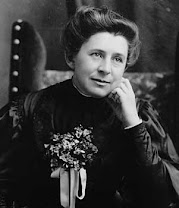William Randolph Hearst: America's First Media Mogul vs. The Media
William Randolph Hearst is arguably the first media mogul in America. His career was abundant, at one point he owned over 30 newspapers as well as other sources of media.
He introduced the world to "yellow journalism" a sensational style of journalism that took over the print media like wildfire.
His newspapers were filled with controversial and sensational claims that captured the audiences attention.
With the start of the American- Spanish War came Hearst's chance to create a spectacle out of it. He used his publications to incite the fear and hatred that was stewing within America.
Most famous is this headline in The New York Journal that said "Destruction of the War Ship Maine Was The Work of The Enemy". This story and similar ones encapsulated not only yellow journalism but Hearst's desire to use his papers as a way to broadcast his own believes.
The combination of yellow journalism, war mongering, and national attention caused Hearst to receive a lot of criticism. His main critic being Upton Sinclair who was a political novelist.
Sinclair hated yellow journalism, claiming that it was filled with falsehoods.
Sinclair also despised the fact that the media was being "controlled" by wealthy media tycoons such as William Randolph Hearst. Sinclair even wrote, "American journalism is a class institution serving the rich and spurning the poor".
But Sinclair was not the only critic of Hearst. The most notable is Orson Welles a Hollywood producer and director.
In 1941 he produced a movie called " Citizen Kane" a film modeled after the life of Hearst. It centered around the life and death of fictional media mogul Charles Foster Kane.
The movie paints Kane, modeled after Hearst, as a lonely, greedy, and dying after years of isolation.
The similarities between Kane and Hearst were so clear that Hearst himself tried to use his Hollywood connections to get the film banned.
It is reported though that it was not his portrayal in the film but instead that of his mistress Marion Davies. Her movie counterpart was portrayed as Kane's second wife who was an alcoholic singer.
Welles himself later admitted to using the second wife as a reflection of Davies, saying it was a "dirty trick" he knew would upset Hearst.
Hearst refused to publish anything about the film or its awards in any of his publications. Instead he used his papers to attack the Hollywood film industry, publishing racist and anti-Semitic pieces. Some examples are critiquing the lack of American actors and instead the use of "immigrants"and "refugees" in reference to the increasing number of Jewish actors.





Comments
Post a Comment